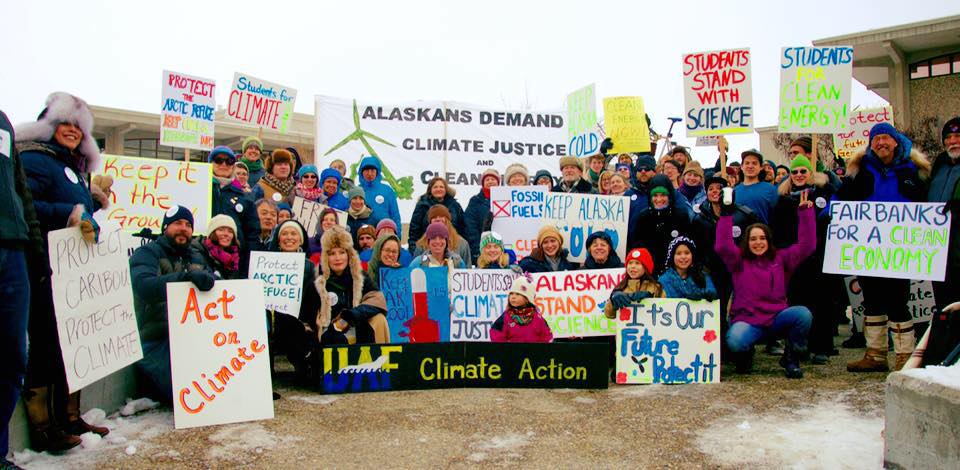Anglicans are at the forefront of several conversations taking place around the globe about environmental issues this week.
First, in Japan, several clergy spoke at the International Forum for a Nuclear-Free World held in Sendai about the consequences of the 2011 explosion at the Fukushima nuclear plant. The forum, organized by the Nippon Se Ko Kai (NSKK), was intended to follow up on the Church’s 2012 statement calling for an end to nuclear power.
One pastor, Dr Naoya Kawakami, whose church was affected by the tsunami and is the General Secretary of the Sendai Christian Alliance Disaster Relief Network, Touhoku HELP, explained how he had supported sufferers in the aftermath and heard from priests supporting the survivors. He said: “I have been more than 700 times to meet with more than 180 mothers and about 20 fathers, all of whom have seen abnormalities in their children since 2011. . . Thyroid cancer has been found in more than 273 children and many mothers are in deep anxiety.
“The more the situation worsens, the more pastors become aware of their important role. The role is to witness . . . pastors who have stayed in Fukushima with the ‘voiceless survivors’ are showing us the church as the body of Jesus’s resurrection, with wounds and weakness . . . sufferers are usually in voiceless agony and most people never hear them.”
The forum was attended by bishops, clergy and lay representatives from each diocese, together with representatives from the US-based Episcopal Church, USPG, the Episcopal Church of the Philippines, the Diocese of Taiwan, the Anglican Church of Korea, and also ecumenical guests. International experts took part, along with local clergy who shared individual stories from those directly affected by the disaster.
… Arguing for an end to nuclear power, NSKK priest John Makito Aizawa said: “Both religiously and ethically, we cannot allow nuclear power plants to continue running. They produce deadly waste, which we have no way of processing into something safe.”
At the U.N., Jillian Abballe, the Advocacy Officer and Head of New York Office for the Anglican Communion, participated in a panel discussion about the role of faith communities in planting and nurturing the seed of climate responsibility.
Jillian said the Anglican Communion is speaking out about the environment and how to understand the world through a holistic theology that reconciles the people, the planet and prosperity.
She said: “The commitments we make as communities and global networks make a statement to the world and re-shape our imagination of mission and how we respond to such crises. For example, at the recent 17th session of the Anglican Consultative Council a resolution was passed that recognised the scale of the global climate emergency and encouraged all Anglican churches to live out what is called the fifth Mark of Mission – ‘to strive to safeguard the integrity of creation, and sustain and renew the life of the earth.’”
She highlighted the role of the Anglican Communion Environment Network in advocating for responsible environmental stewardship, support and leadership to local initiatives, and educating Anglicans as individuals and communities to become better stewards of creation.
Jillian said the Communion has begun to implement collaborative strategies across its provinces and working with the Environmental Network and the Anglican Alliance, it is bringing together development, relief and advocacy activities combined with capacity building and training.
…Responding to questions, Jillian said: “there is urgent action that needs to be taken that we possibly haven’t fully imagined. . . I hope in our faith traditions we can call up the spirituality to usher us into an era where we can have that imagination to create new solutions.”
Finally, Anglicans worldwide are being encouraged to take action to combat air pollution.
Resolutions from the Anglican Consultative Council meeting in Hong Kong [which took place April 28-May 5, 2019], published this week, recognise that there is a global climate emergency and encourages all Anglican churches to live out the fifth Mark of Mission – “to strive to safeguard the integrity of creation, and sustain and renew the life of the earth.”
Calls to action from the environmental resolution include: a day of public repentance and a Lenten fast for creation; sustainable living action plans, resources and policies to minimise waste, increase use of renewable energies and incorporate “creation care” into liturgy; identifying climate threats and running strategic planning conferences on the sustainable development goals and climate change, and encouraging the Lambeth Conference 2020 to be as environmentally sustainable as possible.
World Environment Day is being hosted by China this year and Bishop Andrew Chan of Western Kowloon in the Hong Kong Sheng Kung Hui, has written a prayer for the day which is available on the ACEN Green Anglicans website along with sermon and liturgy resources.
According to the site there are 4.2 million deaths every year as a result of exposure to ambient (outdoor) air pollution, while 91 per cent of the world’s population lives in places where air quality exceeds WHO guideline limits. It also states that more people die from air pollution than HIV and Malaria.

